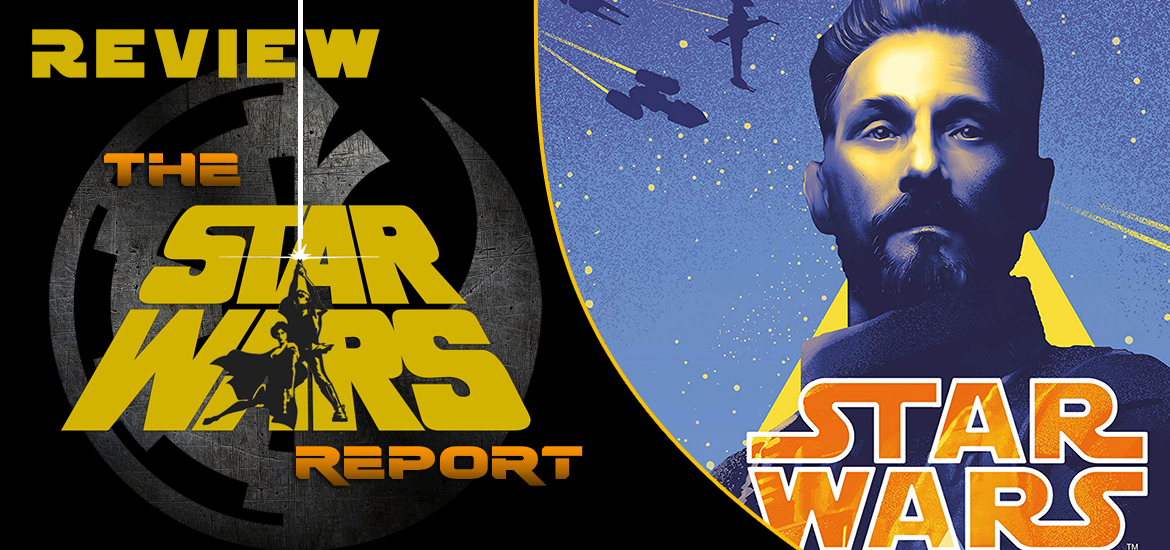The events of Shadow Fall have left Alphabet Squadron shattered and picking up the pieces in light of Yrica Quell’s betrayal. They have a chance to take down Shadow Wing for good as Operation Cinder rears it’s ugly head again, forcing Alphabet Squadron to defend Imperial worlds from destruction as the Empire eats its own. The end of the war feels near yet our heroes are left with the scars from years of fighting that may never heal.
The crawl for Revenge of the Sith said, “There are heroes on both sides” and Alexander Freed brings this statement to life in his third book of the Alphabet Squadron series, Victory’s Price. The Imperial remnant can no long afford to be at war with the New Republic, yet they continue their terror campaign, Operation Cinder. Freed gets into the head of Colonel Keize to to help us understand the reason why a person like him is more nuanced that might first appear. He’s not fighting for the cause, he’s fighting for the people next to him. It’s better for him to die defending his comrades than land in the arms of New Republic justice. He has no faith that the New Republic will handle trials fairly. Plus it comes to light in the novel that the Emperor made sure everyone in his service had their hands dirty, no matter their job in the Empire, there is no innocence.
On the other side, Freed uses every opportunity to dig deep into the impact years of war has had on the Rebels. In many ways the scars of war are proving Thomas Wolfe’s contention that you can’t go home again, at least not the same as when you left. Few Star Wars books dive into the psychological impact of war the way Victory’s Price does. Fans have become use to characters being able to easily overcome anything thrown at them, Freed doesn’t give us that luxury and the book is the better for it.
The best theme of the book is the way in which one see’s the “other side”. Quell says,
“Keize was just trying to keep his troops alive. Give them a future. And I -” She paused again for a long time. “I started to think maybe they didn’t deserve dying. Even as I watched them murder planets, I started to think of them as -not good people, not decent people, but people. My friends.”
This may be one of the best things to come out of a Star Wars book thematically in years. In a society that has lost the ability to see the “other side” as people, it speaks volumes. If one cannot see the humanity in someone across the aisle, it will enable “othering” and once you start down that dark path, forever will it dominate your destiny.
Another huge plus for the novel is that Hera is given much more page time finally! It’s disappointing that it took two books before that happened. Hera should have been the feature character throughout the entire series.
The last theme that really stood out was the importance of remembering our mistakes and past. Quell says,
”But I haven’t forgotten Nacronis or anything else. I live with the memory of what I’m capable of every day. I need the memory to do better. And wiping out the records of what we’ve done seem an awful lot like helping everyone else forget.”
History, personal and societal must be remembered. It is only through knowing, recognizing and coming to terms with the truth of our mistakes that we can avoid making them again.
Victory’s Price is a rare type of Star Wars book. There is a depth to it that will surprise you. Personally I was not expecting to like this book after the second entry in the series but I was wrong. This might be one of the best Star Wars books in a long while. Victory’s Price is rated 4.5 out of 5 stars.
This review was completed with a review copy of Victory’s Price from Del Rey Publishing.
Author: Matt Rushing
Matthew Rushing is the host of Trek.fm‘s The 602 Club and co-host of TheNerdParty.com‘s AggressiveNegotiations: A Star Wars Podcast. He can be found on Twitter @mattrushing02.

[…] This review originally appeared on The Star Wars Report. […]